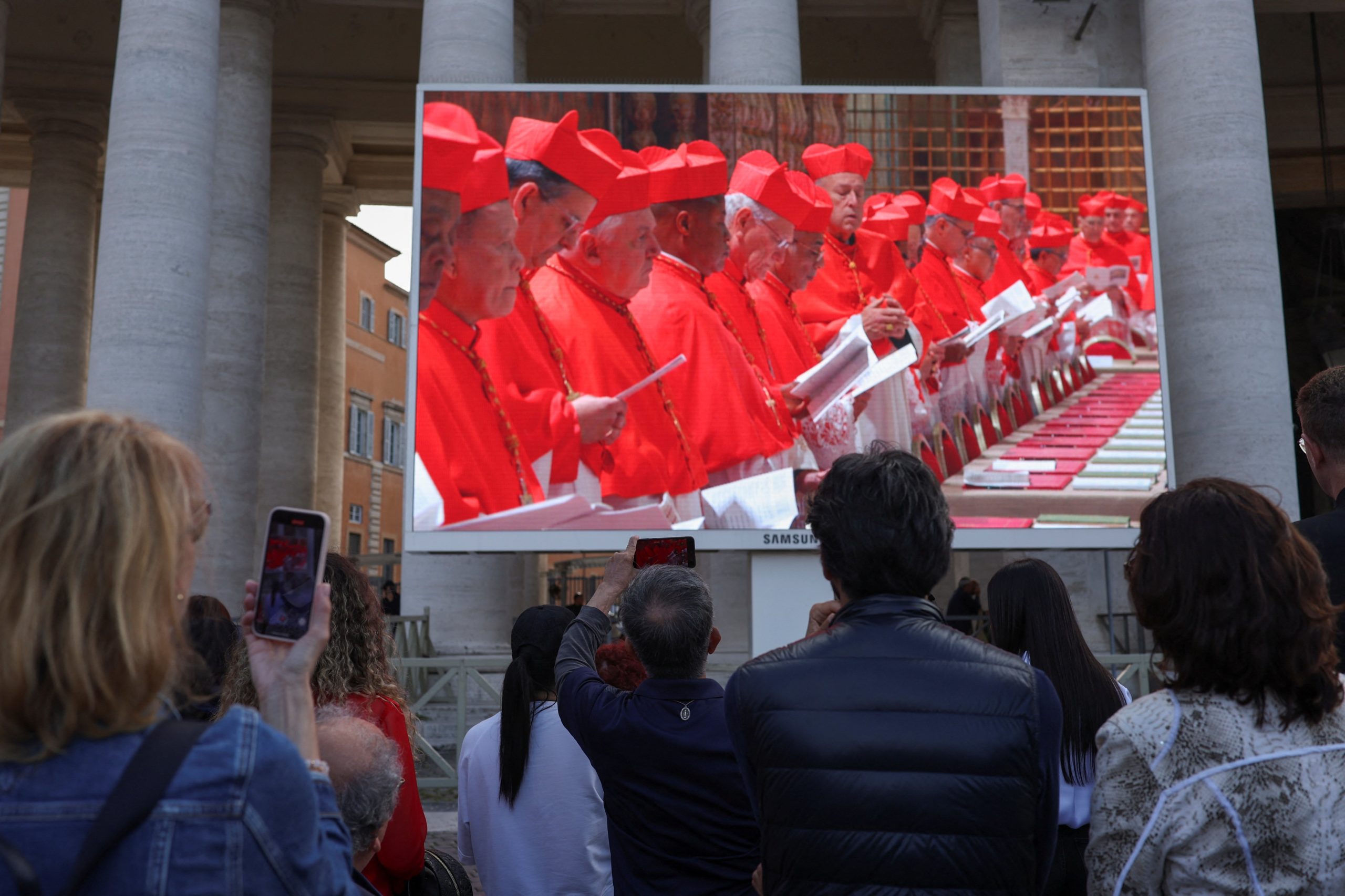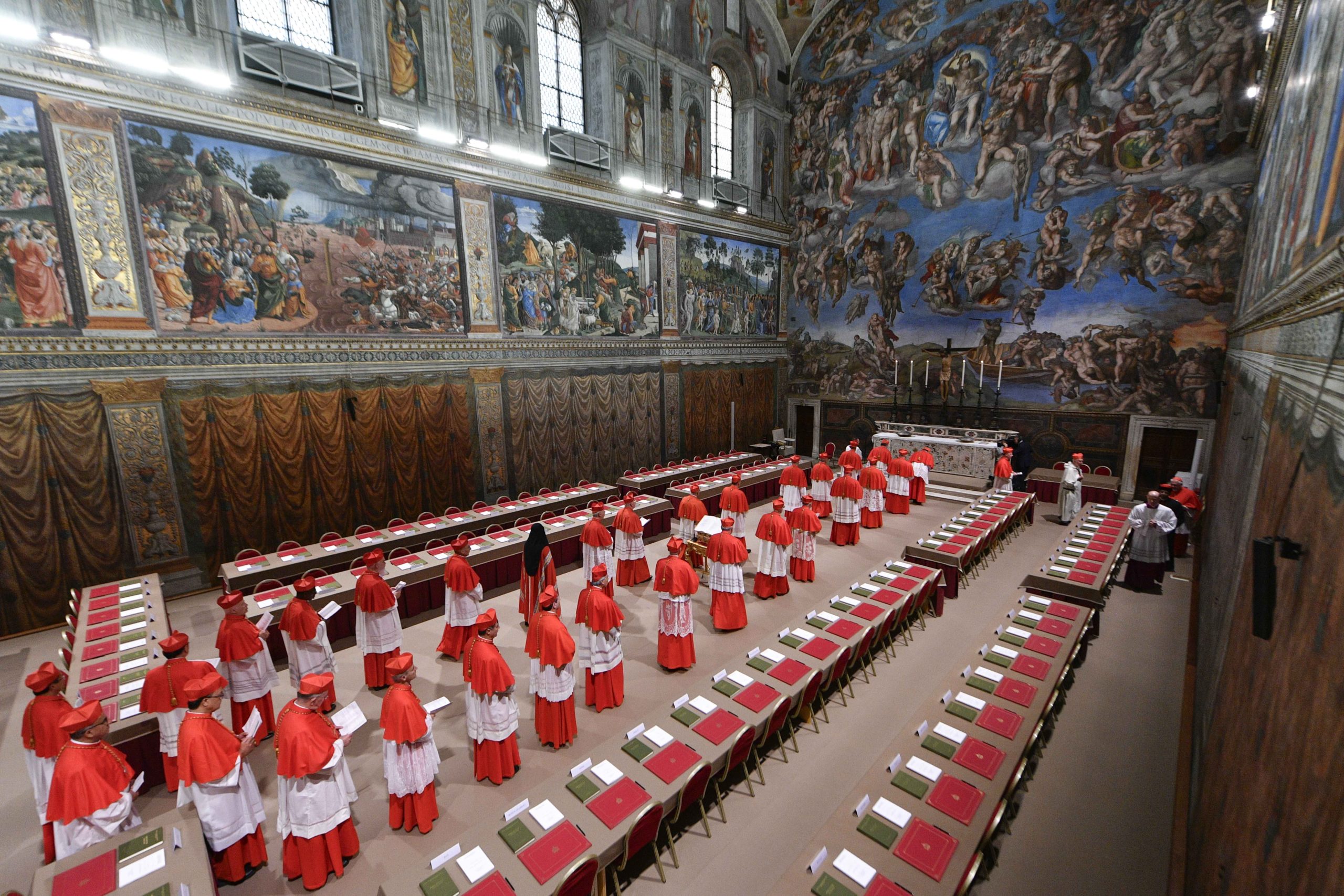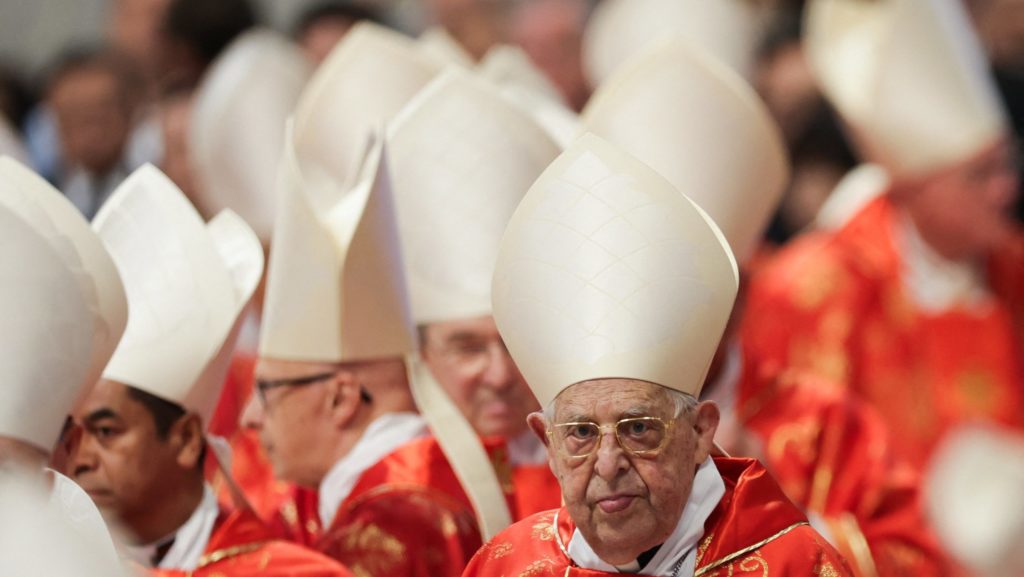After days of closed-door meetings and nonstop media coverage of their views, backgrounds, and connections, the cardinals who will elect the next pope looked remarkably human as they processed into St. Peter’s Basilica on Wednesday, wearing either nervous smiles or solemn frowns.
The May 7 Mass "Pro Eligendo Romano Pontifice" (“For the Election of the Roman Pontiff”) was held just a few hours before the conclave’s 133 cardinal electors were to cast their first votes in the Sistine Chapel Wednesday evening. If the weight of the moment hadn’t landed on their shoulders by then, it probably did during the homily from Cardinal Giovanni Battista Re, dean of the College of Cardinals.
“This is a human act for which every personal consideration must be set aside, keeping in mind and heart only the God of Jesus Christ and the good of the Church and of humanity,” said Re, who at 92 is too old to participate in the conclave itself.
The Italian cardinal described the electors’ task as “an act of the highest human and ecclesial responsibility” and prayed “that God will grant the Church a pope who knows how best to awaken the consciences of all and the moral and spiritual energies in today’s society, characterized by great technological progress but which tends to forget God.”
He also reminded the cardinals that they will cast their votes for the next pope before Michelangelo’s famous depiction of Jesus Christ as judge, which St. Pope John Paul II once observed should “remind everyone of the greatness of the responsibility of placing the ‘supreme keys’ in the correct hands.”
But whose hands should those be? That was the subject of prayers from non-cardinals at the Mass, too. Sister Marie Josee Mukabayire, a member of the Daughters of Mary, found a seat next to the basilica’s central aisle to capture pictures of the cardinals in procession with her phone, fully aware that one of them would be the next pope.
“I came just to pray for a pope who will be good for the Church, who will run the Church with compassion, love, and loving especially the poor,” said Mukabayire.
After surviving the Rwandan genocide of the early 1990s, Mukabayire decided to devote her life and ministry to working for peace. She hopes the next pope will work with government leaders to address the root causes of mass migration.
“We need someone to unite the world,” said Mukabayire, who recently wrote a book about her experience during the genocide.

Rodolfo Lopez of Mexico City reshuffled his family’s vacation plans, cancelling visits to other parts of Italy to stay in Rome during the conclave. During the pre-conclave Mass, he said he felt overcome with gratitude for the chance to witness history.
What kind of pope would he like to see?
“As the cardinal [Battista Re] said, the most important thing is love, something which might seem corny or trite to say nowadays,” said Lopez, who came with his wife and son, Rodolfo Jr. “With so many divisions in the Church, it’s important that the pope unify people.”
That said, Lopez and his son admitted they’re hoping for a pontiff who will emphasize tradition and Church doctrine a bit more than Pope Francis did.
“We’d like a Church that’s not as lax, but that instead goes back to the fundamentals,” said Lopez.
Asked after the Mass if she was worried about the conclave’s outcome, Mukabayire sounded a confident note.
“I'm very peaceful, because I trust in the Holy Spirit,” said the nun. “The Holy Spirit has worked a lot for the Church since the beginning. Otherwise, the Church could not survive.”


